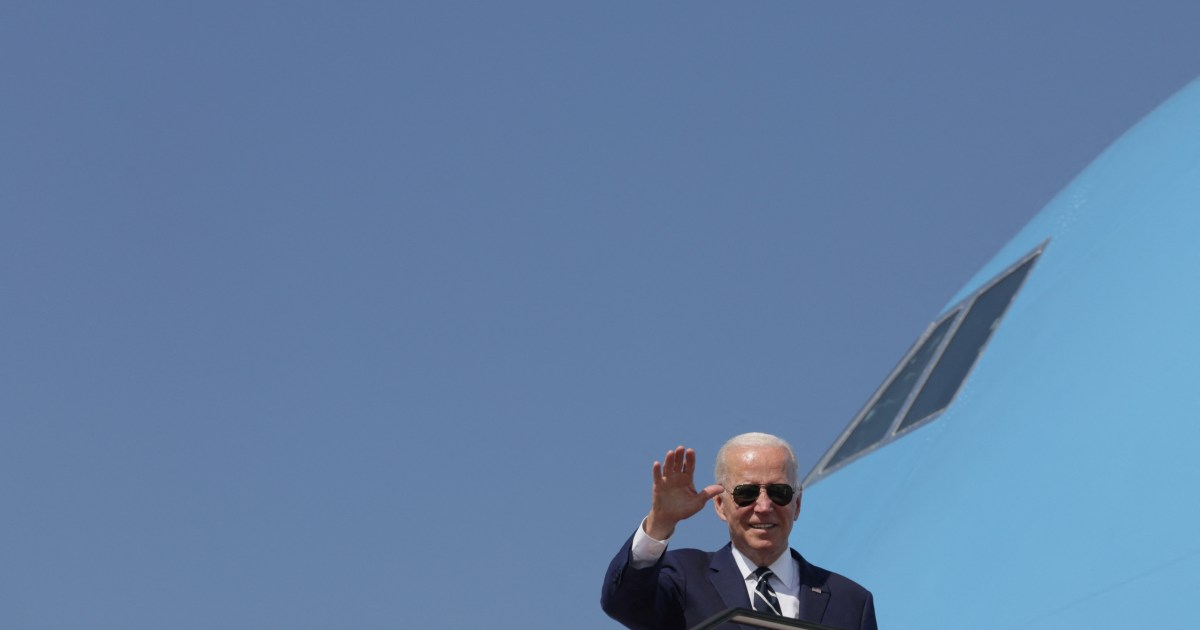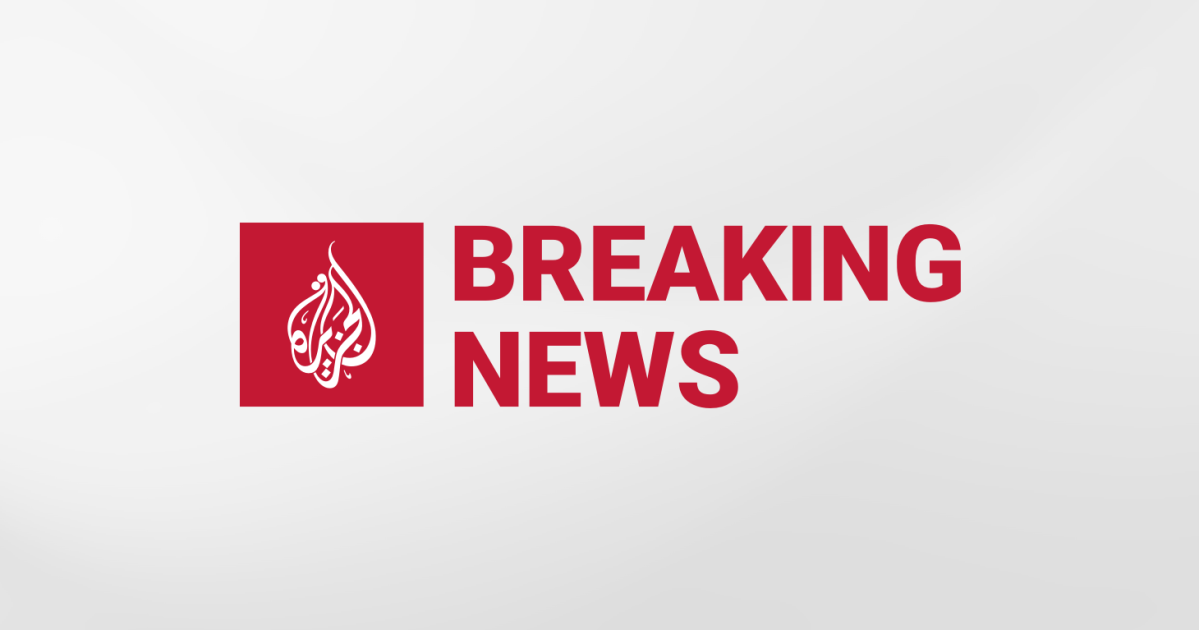Biden heads to Saudi Arabia seeking reset amid tensions | Energy News
US President Joe Biden is travelling to Saudi Arabia, where he is expected to meet senior officials despite a previous promise to treat the kingdom as a “pariah” over the 2018 killing of Saudi journalist Jamal Khashoggi.
Biden departed directly from Israel for the Red Sea coast city of Jeddah on Friday – becoming the first US president to fly from there to an Arab nation that does not recognise it. In 2017, his predecessor, Donald Trump, made the journey in reverse.
The trip is designed to reset the US relationship with the kingdom and during which energy supply, human rights and security cooperation are on the agenda.
The White House said Biden would hold a bilateral meeting with Saudi King Salman bin Abdulaziz at the royal palace in Jeddah and then the president and his team would have a working session with Crown Prince Mohammed bin Salman, known as MBS and Saudi ministers at the palace.
Energy and security interests prompted the president and his aides to decide not to isolate the kingdom, the world’s top oil exporter and regional powerhouse that has been strengthening ties with Russia and China.
Ahead of the visit, a US official told the Reuters news agency that Washington was not expecting Riyadh to immediately boost oil production and was eyeing the outcome of the next OPEC+ meeting on August 3.
The visit will be closely watched for body language and rhetoric. US intelligence reportedly concluded that MBS directly approved the 2018 murder of Washington Post newspaper columnist Jamal Khashoggi, although the crown prince denies having a role in the killing.
White House advisers have declined to say whether Biden will shake hands with the prince, the kingdom’s de facto ruler.
Biden said on Thursday his position on Khashoggi’s murder was “absolutely” clear. Biden made his “pariah” comment less than two years ago after the journalist’s killing and while campaigning for president.
Biden said he would raise human rights in Saudi Arabia, but he did not say specifically if he would broach the Khashoggi murder with its leaders.
Saudi ambassador to the United States Reema bint Bandar Al Saud, writing in US magazine Politico, reiterated the kingdom’s “abhorrence” of the killing, describing it as a gruesome atrocity, and said it cannot define US-Saudi ties.
She said the relationship should also not be seen in the “outdated and reductionist” oil-for-security paradigm.
“The world has changed and the existential dangers facing us all, including food and energy security and climate change, cannot be resolved without an effective US-Saudi alliance.”
US seeks oil production boost
Biden will meet with a broader set of Arab leaders at a summit in the Red Sea port city of Jeddah on Saturday.
The US is eager to see Saudi Arabia and its OPEC partners pump more oil to help bring down the high cost of gasoline and ease the highest US inflation in 40 years.
Saudi Arabia, alongside the United Arab Emirates, holds the bulk of spare capacity within the OPEC+ group, an alliance between the Organization of Petroleum Exporting Countries (OPEC) and other exporters, most notably Russia.
Brent crude prices are trading at just under $100 a barrel, having hit a 14-year high of $139.13 in March, as investors weigh new COVID-19 lockdowns in top importer China and recession fears.
Spare capacity within OPEC is running low, with most producers pumping at maximum capacity. It is unclear how much extra Saudi Arabia could bring to the market and how quickly.
Biden said recently that he would not ask Saudi leaders directly to increase oil production. Instead, he would continue to make the case that all Gulf states should raise oil output, he said.
OPEC+ decided last month to increase output targets by 648,000 barrels per day (bpd) in August, ending record production cuts that it brought at the height of the pandemic to counter collapsing demand.
‘Groundbreaking’ move
Biden will encourage peace and press for a more integrated Middle East during his trip, an administration official told Reuters. Topics include strengthening a truce in Yemen, “balance” in energy markets and technological cooperation in 5G and 6G.
Ahead of the visit, Saudi Arabia said it would open its airspace to all air carriers, paving the way for more overflights to and from Israel, in what Biden described as a historic and important step towards building a more integrated and stable Middle East.
“Thanks to months of steady diplomacy between my administration and Saudi Arabia, it is finally a reality,” Biden said in a statement. “I will do all that I can, through direct diplomacy and leader-to-leader engagement, to keep advancing this groundbreaking process.”
Two years ago, Riyadh did not protest when the United Arab Emirates and Bahrain moved to normalise relations with Israel.
The US-brokered deals known as the Abraham Accords established a new axis in the region, where Gulf states share Israel’s concerns about Iran’s nuclear and missiles programmes and proxy network. Saudi Arabia and Iran have for years vied for regional influence but launched direct talks last year in an effort to contain tensions.
The Saudi ambassador said US-Saudi efforts to ensure peace and security should focus on enhancing cooperation and “reinforcing a rules-based system” to confront the “vision of chaos promoted by Iran”.
During his visit to Israel, Biden and caretaker Prime Minister Yair Lapid signed a joint pledge to deny Iran nuclear weapons, which the Islamic Republic denies seeking.





Pingback: buy magic boom bars online rwanda
Pingback: Online medicatie kopen zonder recept bij het beste Benu apotheek alternatief in Amsterdam Rotterdam Utrecht Den Haag Eindhoven Groningen Tilburg Almere Breda Nijmegen Noord-Holland Zuid-Holland Noord-Brabant Limburg Zeeland Online medicatie kopen zonder r